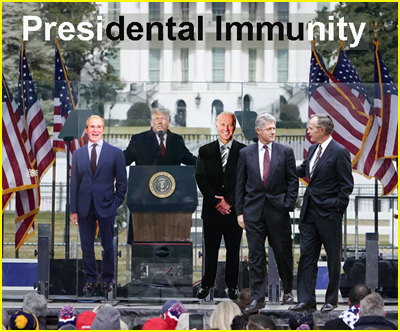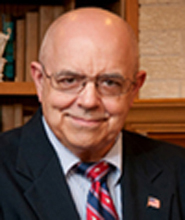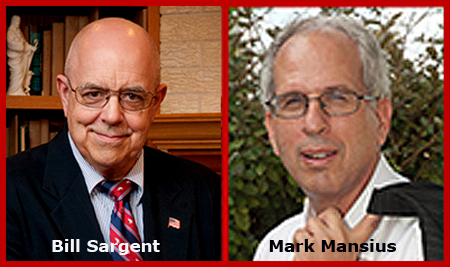Published in The Galveston County Daily News
March 26, 2024
The left filed several lawsuits against President Trump based upon a never before used combination of legal theories in attempts to block his reelection. One involves his speech on the Ellipse (over two miles from the Capitol) on January 6th.
Trump’s defense team argues that presidents who are involved in legal activity – like free speech -- must be immune from lawsuits while in office and afterwards. The prosecutors disagree, seeking to go quickly to trial before the November election. The Supreme Court (SCOTUS) has agreed to hear and rule on the immunity defense but it’s becoming increasingly clear to many on all sides of the political spectrum that this, and the other cases, are attempts to sway the outcome of the forthcoming election, especially since Trump is the prospective Republican nominee.
The Federal Prosecutor, Jack Smith, argues for a speedy trial. Accepted jurisprudence guarantees this right ONLY to defendants. Some polls suggest a conviction would damage the Republican nominee’s chances for reelection. No valid argument exists as to why this trial couldn’t be held after November 5th. Question: Why didn’t Smith bring this lawsuit several years earlier when he could have? The same question needs to be asked of the other cases as well. Why are all of these lawsuits timed to line up with the November presidential election? The only reasonable explanation is to interfere with this year’s election.
With SCOTUS stepping in, Smith’s objective of going to trial before November seems in jeopardy, especially if they’re going to follow the established practice of refraining from prosecution of candidates during the months before an election.
The assertion of Presidential immunity is ticklish a question. Previous cases haven’t established whether presidents enjoy immunity from prosecution once they leave office. Some reasonably contend if presidents can be tried after leaving office it could have a “chilling effect” on their actions while in office (e.g., if immunity doesn’t exist, could Joe Biden be tried for his failure to protect American lives during his botch withdrawal from Afghanistan? Without it would he have acted differently?) Courts have mostly supported presidential immunity for a long time beginning with Marbury vs. Madison, upholding absolute immunity against civil actions. The question is does this extend to supposed criminal activity?
Trump asked Vice President Mike Pence to have the state legislatures in the states with competing slates of electors to verify which slate to accept. He contended the Constitution gives legislatures, NOT executive branches or courts, the authority to make these decisions. Was this an official act? Regardless, was this action illegal? There isn’t any law that designates January 6th as a deadline for making such a decision and delaying it for a few days doesn’t seem illegal.
Secondly, asking people to “peaceful” walk two miles to the Capitol to voice their opinion also doesn’t seem a violation. Trump has free speech rights, regardless.
SCOTUS must decide a balance between personal activities and official duties and deduce which trumps when the two collide. In the 2020 election nothing Donald Trump did appears illegal or unsimilar to actions Democrats have taken in the past -- having alternative electors, filing lawsuits, publicly claiming election fraud.
This decision by SCOTUS isn’t going to be a small matter, it’s possibly transformational. The long-lasting impact on our elections and governmental practices are at stake.
|






![]()
![]()
![]()
![]()
![]()
![]()
![]()
![]()
![]()
![]()
![]()
![]()
![]() You are here > Home > News Columns > Presidential Immunity; A "Ticklish" issue with immense implications
You are here > Home > News Columns > Presidential Immunity; A "Ticklish" issue with immense implications